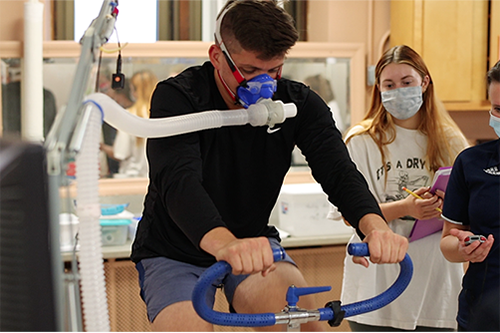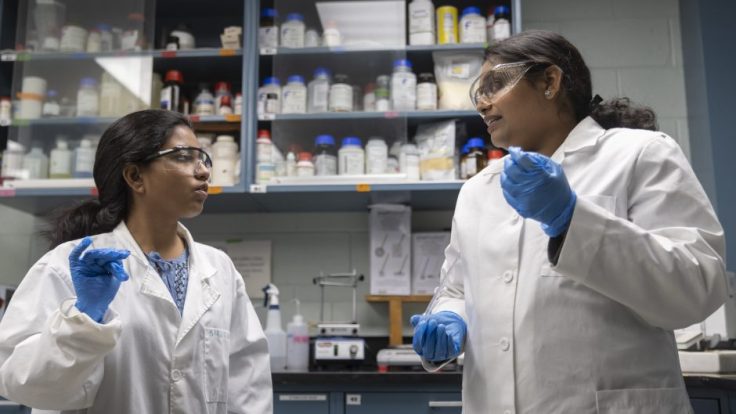Food, Nutrition and Exercise Sciences
DEGREES AND PROGRAMS
Undergraduate Studies
With a bachelor’s degree from the Division of Food, Nutrition and Exercise Sciences, you will have the skills needed to succeed in a variety of careers in health, corporate, government and non-profit areas.
B.S. in Food Science and Nutrition B.S. in Nutrition and Exercise Physiology Dietetics (Combined B.S. + M.S.)
Graduate Studies
Our graduate programs are nationally and internationally known in several research areas. We offer outstanding education and experience that will help you achieve your career goals.
M.S. in Food and Hospitality Systems M.S. in Nutrition and Exercise Physiology Ph.D. in Food and Hospitality Systems Ph.D. in Nutrition and Exercise Physiology
Minors and Certificates
A minor or certificate enhances your resume, making you a more well-rounded and competitive candidate in the job market or graduate school applications.
Food Safety & Defense (graduate) Food Science & Nutrition Nutritional Sciences Wellness
OVERVIEW
400+
undergraduates
MORE THAN 96%
of graduates report a successful career outcome
RESEARCH
Research expertise in the Division of Food, Nutrition and Exercise Sciences includes:
- Exercise Physiology & Metabolism
- Food Microbiology & Safety
- Food Processing
- Human Nutrition
- Precision Health

Food, Nutrition and Exercise Sciences News & Accolades

Taking on the global challenge of hidden hunger
More than 2 billion people suffer from hidden hunger, a form of malnutrition where individuals lack essential micronutrients — like vitamins and minerals — even though they consume what appears to be an adequate amount of calories. Kiruba Krishnaswamy University of Missouri researcher Kiruba Krishnaswamy is focused on tackling this global challenge. She recently received…
Featured News
About
Division of Food, Nutrition and Exercise Sciences
College of Agriculture, Food and Natural Resources
University of Missouri
Columbia, MO 65211-5200
Phone: 573-882-2369
Email: kennedyse@missouri.edu